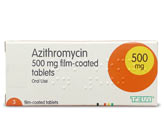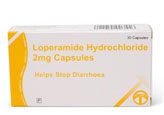Travellers' diarrhoea
Standby medication for the treatment of travellers' diarrhoea: Azithromycin antibiotic and anti-diarrhoea medication.
Read medical information and answer medical questions to buy treatment online.
Travellers' diarrhoea medication
PricesAll medication supplied is UK licensed.
Prices
| Treatment | Qty | Price |
|---|---|---|
| Azithromycin 500mg | 3 tablets | £8.90 |
| Loperamide 2mg | 30 capsules | £5.50 |
| Loperamide 2mg | 60 capsules | £7.25 |
Prescription fees
Dr Fox supplies medicine on prescription and charges a small prescription fee based on the order value of each prescription.
Prescriptions are issued by our doctors online and sent electronically to our pharmacy.
| Order value | Prescription fee |
|---|---|
| up to £10 | £1.00 |
| up to £20 | £2.00 |
| up to £40 | £3.00 |
| over £40 | £4.00 |
If you have your own private or NHS paper prescription please post to our pharmacy (details).
Dr Fox prices are 25%–50% lower than other UK online clinics.
Delivery charges
UK delivery only: £2.90 per consultation via Royal Mail Tracked 24 (1-3 working days with tracking).
Parcel forwarding services are not permitted. Use only UK home or work delivery address.
Returns and refunds - unwanted items can be returned within 14 working days for a full refund.
Medical information
Written and reviewed by a team of doctors. Dr Fox is regulated by the CQC & GPhC.
As many as 5 million people from the UK suffer from travellers' diarrhoea each year. Generally it is a problem when visiting resource-poor countries. If travelling to North America, Europe, or Australasia it is generally no more of an issue than in the UK. Standby antibiotics to treat travellers’ diarrhoea are only advised for travel to high risk countries which includes Africa, Latin America, the Middle East, and most parts of Asia.
Symptoms of travellers' diarrhoea
Diarrhoea (runny poo more than 3 times per day), and also sometimes abdominal pain and cramps, nausea, vomiting, fever, and blood in the stools.
Causes of travellers' diarrhoea
The most common cause is a bacteria - either E. coli or campylobacter. However, it can also be caused by other bacteria, viruses, protozoa, parasites, and toxins (bad chemicals) from foods.
When you are travelling and eating food and drink which may have been prepared in less hygienic conditions, your food and drink may easily have been contaminated and so give you diarrhoea. It is also easy to pick up these bugs on your hands and then get infected.
How long does travellers' diarrhoea last?
Most occurrences happen within the first week of travel. It usually only lasts 1-7 days during which time a small proportion of people can be stuck in bed. In a few people (5%) symptoms can last two weeks or longer. In rarer cases (about 1.5%) travellers' diarrhoea can lead to serious illness and even long-term bowel problems.
How can I treat travellers' diarrhoea?
Most travellers' diarrhoea will cause a relatively mild illness and it may not require any treatment beyond fluid replacement and a light diet - small amounts of foods such as rice or bananas which can be digested easily.
- Drink plenty of water - it is important to keep well hydrated as you will be losing a lot of fluid. Either use sachets of rehydration salts or make your own rehydration drink with salt, sugar, and clean (boiled/filtered) drinking water. Try and drink 3-4 litres (6 pints) of fluid per day. Avoid alcohol as this can cause further dehydration.
- If you have a long journey with limited toilet stops then loperamide can usually reduce the frequency of diarrhoea. It reduces spasm in the bowel and also helps with cramps. It works best if started early in the diarrhoea.
- Taking an antibiotic can significantly reduce the severity and duration of travellers' diarrhoea, but only if the diarrhoea is caused by bacteria. Dr Fox prescribes azithromycin to take with you as a 'stand-by' medication when travelling to countries at high risk of bacterial diarrhoea. Ciprofloxacin is no longer recommended as an antibiotic for travellers' diarrhoea due to increased antibiotic resistance and rare severe side effects.
Azithromycin
Travellers most likely to benefit from antibiotics for travellers' diarrhoea:
- If going to a remote location with little or no access to good medical assistance.
- If you are at high risk of the diarrhoea leading to severe illness, e.g. poorly controlled diabetes, renal impairment, heart failure, reduced CD4 HIV or other reduced immunity.
- With pre-existing bowel problems where infection may trigger a relapse, e.g. ulcerative colitis, Crohn's disease, and previous bowel surgery.
Note: azithromycin is not licensed to treat travellers' diarrhoea, but it has been prescribed by doctors as an 'off-label' treatment for many years. If a medicine is used for an off-label (unlicensed) purpose the manufacturer is not liable in case of adverse events. Doctors take the responsibility for the prescribing.
Dr Fox limits prescriptions for azithromycin for travellers' diarrhoea to a maximum of 1 prescription in 3 months as they should not be taken regularly to reduce the risk of antibiotic resistance.
Cautions
Do not take azithromycin if you have a known allergy to azithromycin, erythromycin, or clarithromycin.
Do not take azithromycin if you have the following medical conditions:
- Current or previous history of an irregular heartbeat.
- Myasthenia gravis.
- Liver disease.
- Kidney disease.
- Lactose allergy or intolerance (azithromycin tablets contain lactose).
It is not recommended to take azithromycin when trying to conceive, or during pregnancy and breastfeeding, without first discussing with your own GP.
There is a very rare theoretical risk of abnormal heart rhythm if azithromycin is taken at the same time as some other medications - please check this list.
How to take azithromycin
Treatment with azithromycin is 500mg once a day for 3 days. Start the course as soon as you get diarrhoea, not before. It is not a preventative.
Side effects
If there are any side effects the most common are stomach upset, nausea, and diarrhoea. For further details read the azithromycin patient information leaflet supplied with the tablets.
Antibiotic guardianship

To combat antibiotic resistance please:
- Only use antibiotics when needed
- Never share antibiotics
- Always complete course as instructed
- Take unused medicine to local pharmacy for disposal
Loperamide (Imodium)
Loperamide reduces the spasm in the bowel and reduces the frequency of diarrhoea. It works best if started early in the diarrhoea. Loperamide (Imodium) is available from pharmacies over the counter.
Cautions
Loperamide should not be taken if:
- Diarrhoea starts after a course of antibiotics.
- There has been prolonged constipation before diarrhoea starts.
- The diarrhoea contains blood and there is a high fever.
- There is a high fever.
How to take Loperamide
Take two loperamide 2mg capsules straight away. Then take one capsule after each episode of diarrhoea for up to 5 days. The maximum number of capsules in a day is 8 (16mg). The usual amount is 3-4 capsules (6-8mg) daily.
Side effects
Possible side effects include feeling dizzy, tired or drowsy. Feeling sick (nausea), dry mouth, constipation and headache.
For further details read the loperamide patient information leaflet supplied with the tablets.
Travellers' diarrhoea - when to seek medical help
Seek medical help if:
- There is blood and green or yellow slime in the diarrhoea.
- Diarrhoea does not begin to improve within 24–36 hours despite self-treatment.
- Persistent high fever (over 38.5°C for 48 hours) especially if in a malaria zone.
- Severe abdominal pains.
- Associated rash or jaundice (yellowing of skin/ whites of eyes).
- It is difficult to take enough fluids and the person is showing symptoms of dehydration: restless or irritable, very thirsty, sunken eyes, and dry wrinkly skin. A saline drip may be needed to restore hydration levels.
Avoiding infections
- Avoid street food or eating at places that appear dirty.
- Drink only bottled (with intact seal) or clean (boiled/filtered/treated) drinks (see water purification).
- Do not use local tap water to clean teeth.
- Try to eat only freshly prepared food that is thoroughly cooked and served very hot.
- Avoid ice in drinks, ice cream, shellfish, salads, and cold foods in buffets which can be contaminated.
- Avoid unpasteurized milk and cheese.
- Fruit that you can peel yourself is safe.
- Frequent hand washing - using soap and water is better than hand gel, but often less practical.
- Travel vaccines - all people who are travelling should be up-to-date with the recommended vaccines for your destination(s) - see the NHS Fit for Travel website.
Further information
- Travellers' diarrhoea FAQs
- Travel Health Pro - Travellers' diarrhoea information sheet
- Travel Health Pro - Food and water hygiene
Dr Fox pharmacy supplies travellers' diarrhoea medication on prescription – you are required to answer a short medical questionnaire before ordering treatment.

Authored 22 March 2010 by Dr Tony Steele
MB ChB Sheffield University 1983. Former hospital doctor and GP. GMC no. 2825328
Reviewed by Dr J. Tweedie, Dr C. Pugh, Dr B. Babor
Last reviewed 27 August 2025
Last updated 29 August 2025
Editorial policy
References
- NICE, 2023, Diarrhoea - prevention and advice for travellers, accessed 27 August 2025
- Aurobindo Pharma - Milpharm, 2025, Azithromycin 500mg: Summary of Product Characteristics, accessed 27 August 2025
- questions
- Choose
- order
Answer medical questions to order(travellers' diarrhoea)
Honest & accurate responses are necessary for safe medical assessment
The order process
Choose medication, register, and pay
Dr Fox issues prescription online
Pharmacy team post medication direct




